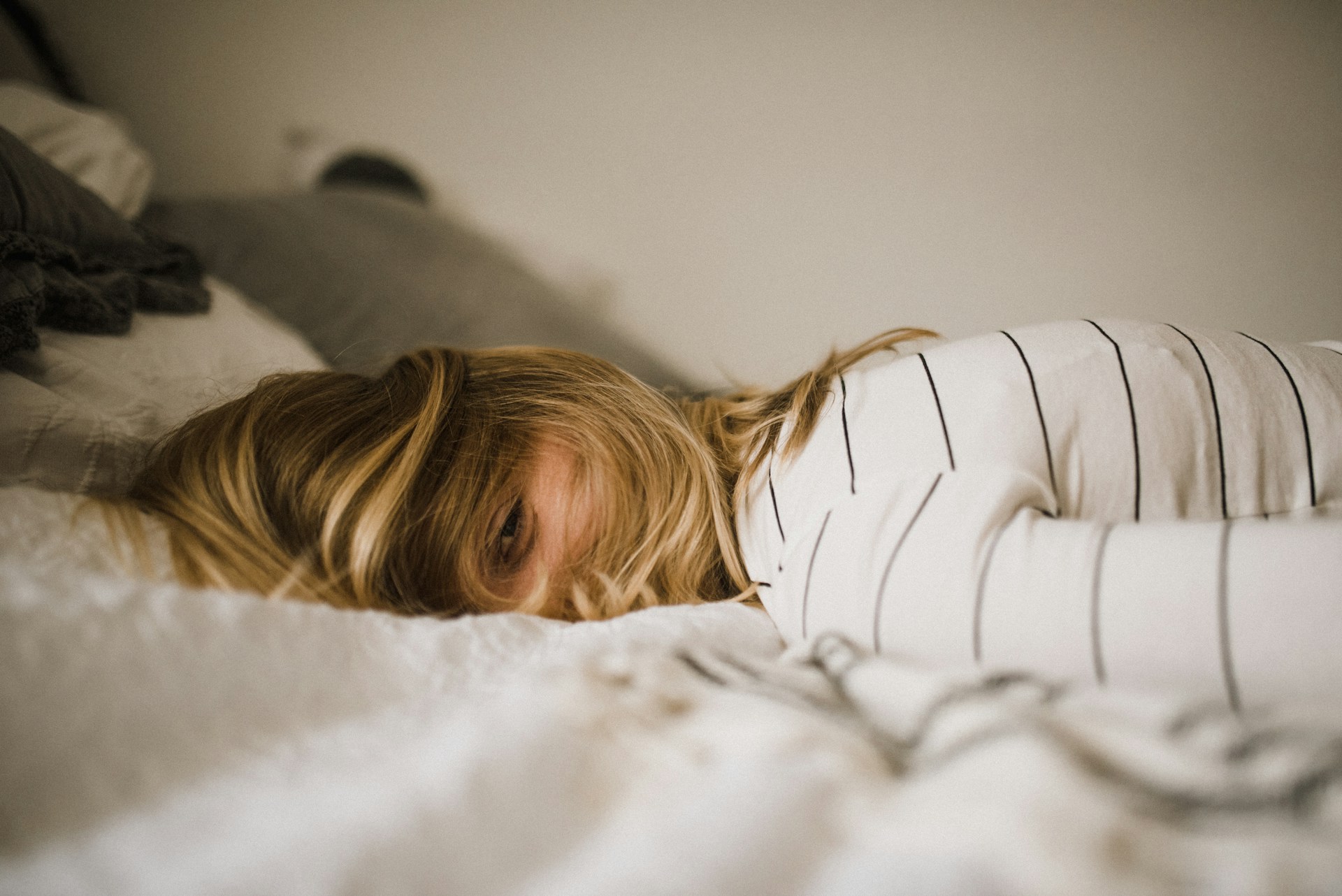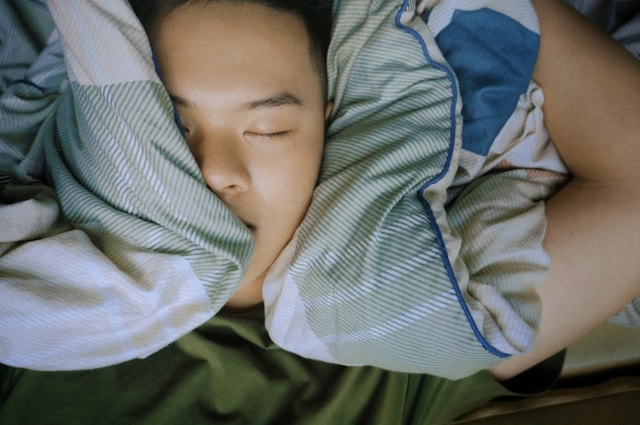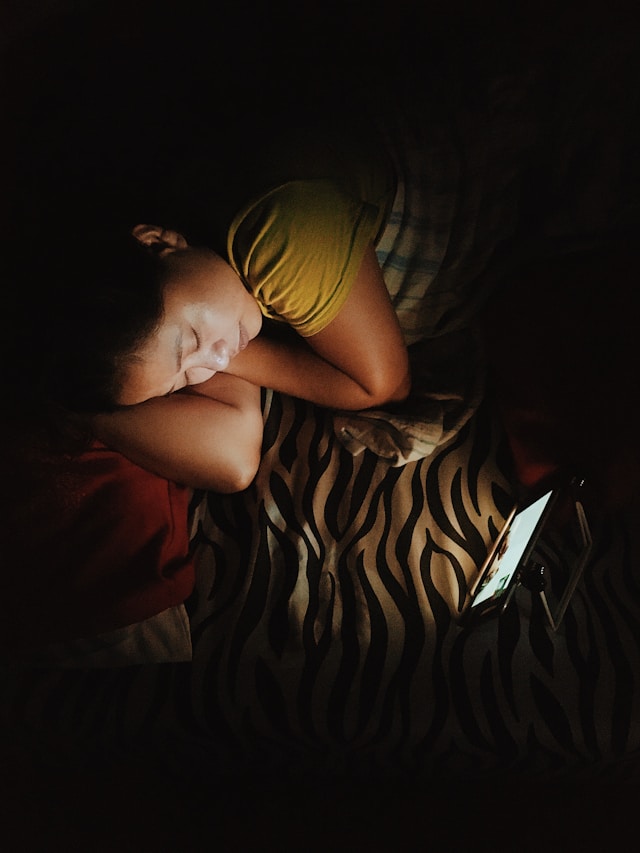Trouble Sleeping? How to treat insomnia

Having trouble falling and staying asleep? Here’s how to break free from your insomnia naturally and get deeper sleep each night
We’ve all had poor sleep at some point in our lives, and it can affect so many other areas of our life—especially if you experience insomnia. We know that sleep deprivation feels awful, and can leave us more irritable, depressed, and fatigued throughout the day. Functional medicine dives into all of the lifestyle factors that disturb sleep and why there may be an imbalance in the body’s sleep cycle. Keep reading to find out how sleep works on a hormonal level, the functional medicine approach to insomnia, and tips our doctors recommend to start getting a better night’s rest.

How sleep works (hormonally)
The two hormones responsible for helping us fall asleep (and wake up) are cortisol and melatonin. Cortisol is one of our main stress hormones, meaning it helps us wake up and have energy throughout the day. In contrast, melatonin is our “sleepy” hormone, and having high levels of melatonin before bed lulls us into a deep, restful sleep.
These two hormones work in tandem with each other and our internal clock, also known as our circadian rhythm, to put us to sleep. Having a low cortisol level and a high melatonin level at bedtime is the ideal recipe for deep, high-quality sleep. However, if there are disruptions to this hormonal cycle, you may wake up in the middle of the night, or feel tired throughout the day and awake at night.
Conventional vs. functional medicine approach to sleep problems
Factors including stress levels, light exposure, stimulants, and temperature can impact your ability to fall asleep and stay asleep throughout the night. Dr. Subhashini Katumuluwa explains, “In conventional medicine, we’re usually pretty quick to turn to prescription sleep aids to help someone fall asleep and stay asleep…In functional medicine, we try to take an inventory of someone’s lifestyle factors and see which of those are likely contributing to someone’s sleep issues. We really look at the whole picture.”
Even if a patient complains about trouble sleeping and says that melatonin supplements help them fall asleep, a functional medicine doctor would try to understand why there’s an imbalance of melatonin in the body, and why supplements work so well for that individual.

Tips to achieve good sleep hygiene and feel well-rested
Maintain a regular sleep schedule. Go to bed and wake up at the same time everyday. If you sleep longer on the weekends, see if there’s a way to prioritize sleep during the week so that you can get the same amount of sleep each day.
Adjust your light exposure. Make sure you get some sunlight exposure during the day (or get a light box that simulates sunlight if you can’t get outside), and wear blue-light-blocking glasses 2-3 hours before bedtime. Avoid scrolling through your phone during the hour before bed!
Create a wind-down routine. To reduce stress in the evening, create a nighttime routine including breathing exercises, journaling, a bath with Epsom salt and essential oils, or a gentle yoga practice. This will signal to your body that it’s time to transition into bedtime and relaxation.
Avoid alcohol consumption before bed. Especially in the 2-3 hours before bed, avoid alcohol. Everyone processes alcohol differently, but it’s a good rule of thumb to avoid having a nightcap—it can actually disrupt your rest instead of promoting sleep. While it’s often thought to be a helpful sleeping aid, alcohol actually disrupts your sleep quality and contributes to poorer overall sleep. You may feel like alcohol helps you fall asleep faster, but that doesn’t actually mean you will stay asleep or have high-quality sleep.

If you’re drawn to having a glass of wine or beer before bed to help you wind down, it’s time to find a new way to relax and unwind. Here are some relaxing self-care activities you can practice instead of reaching for the wine cabinet:
- Take a relaxing bubble bath, with your favorite essential oils.
- Snuggle on the couch with some tea and a good book.
- Start journaling. Try writing down all the things that happened during the day.
- Follow a guided meditation.
If you suspect you are suffering from a sleep problem, such as sleep apnea, it’s important to talk to your doctor before making significant changes to your lifestyle. See how a Ciba Health doctor can help you with insomnia and other sleep problems here.

